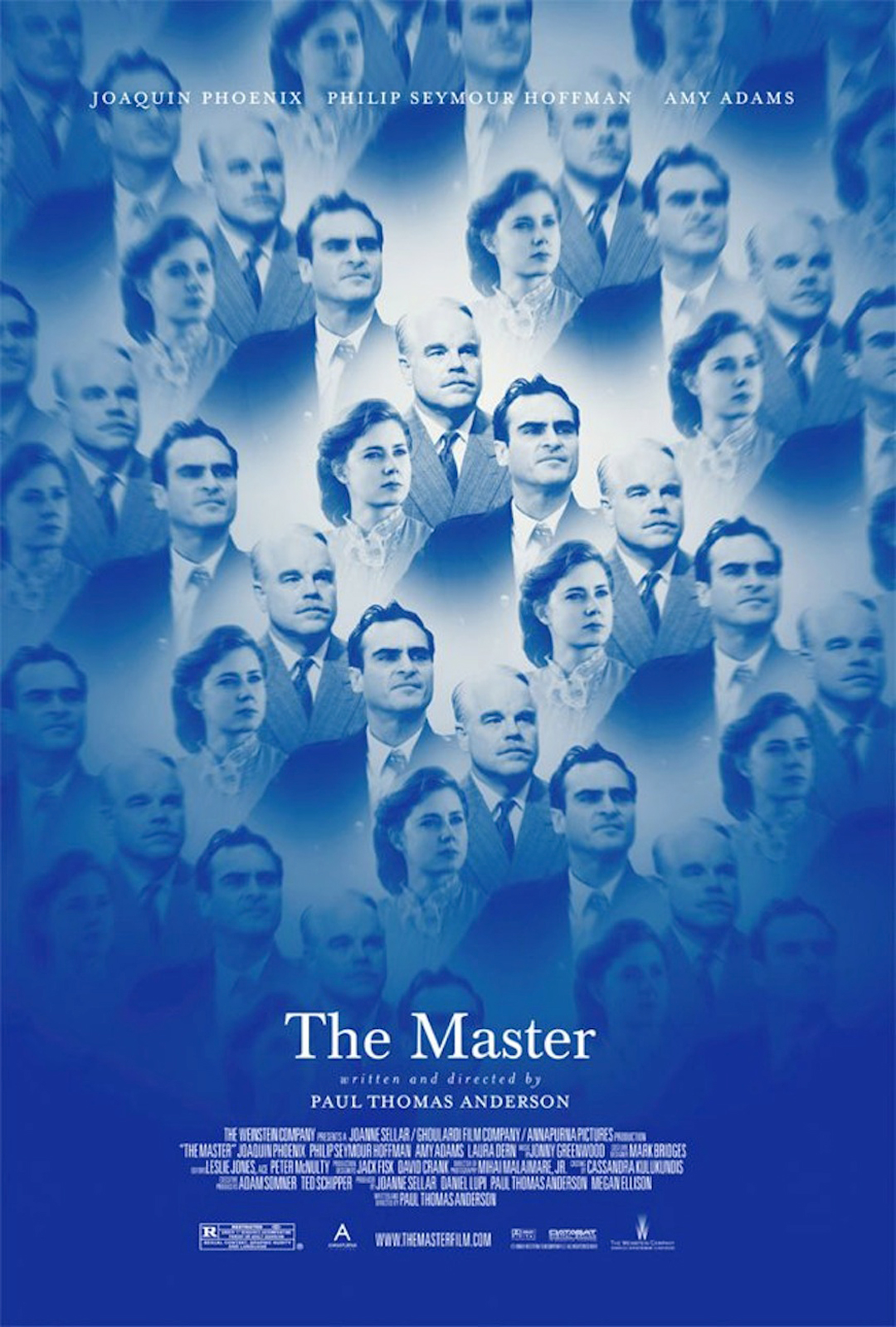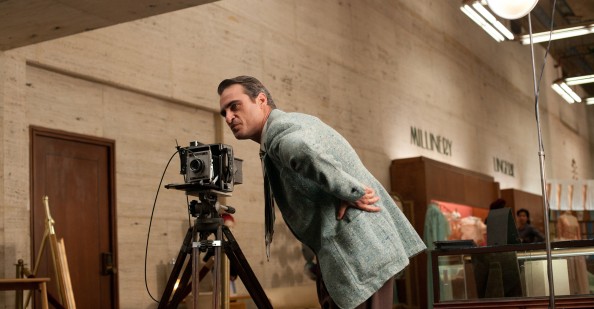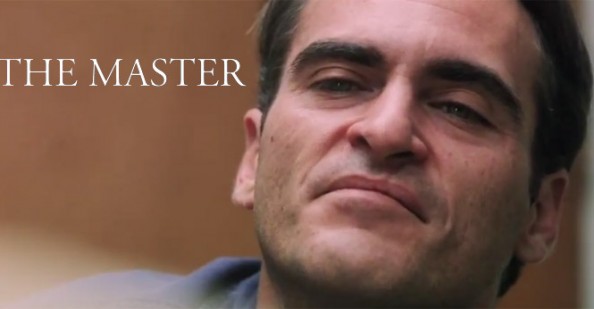A Lot of speculation and anticipation has been brewing for the latest Paul Thomas Anderson film “The Master.” When the director of “Boogie Nights” and “Magnolia” makes the follow up the hypnotic and transcendent “There Will Be Blood,” any fanatic cinephile would declare this one of their eagerly awaited films of any year. For me expectations were met, and at times, exceeded. What we have here is a soon to be treasured American classic. Polarizing to certain segments of the audience, most film lovers will be transfixed and commanded under its spell.
For those unfamiliar or vaguely heard about the Master, here’s a brief summary courtesy of Weinsten Company:
A striking portrait of drifters and seekers in post World War II America, Paul Thomas Anderson’s The Master unfolds the journey of a Naval veteran Freddie (Joaquin Phoenix) who arrives home from war unsettled and uncertain of his future – until he is tantalized by The Cause and its charismatic leader Lancaster Dodd (Philip Seymour Hoffman).
Let me say that “The Master” is too much to process in one viewing. Its almost unfair to review it without seeing it twice. I had the opportunity to see it a second time. What I experienced was more aspects of the film including many specific details. My first impression is it will age overtime. Ten to fifteen years from now it will be very much appreciated even more so then today. (How I hope it would find many fans during Awards Season.) The screenplay of “The Master” brilliantly pours tension as the intensity of the dialogue, especially with scenes between Phoenix and Hoffman overwhelms the film. This is its strength. The cinematography formed an atmospheric mood with stark contrasts of light and dark. This isn’t so much wide angle or shaky cam shots we come accustomed to, but an introspective look. The jaw dropping acting from Phoenix, Hoffman, and Adams were stunning with dramatic flair. However, Phoenix as Freddie is a memorable, kooky, and dare I say iconic film character. And in “The Master,” that presents a world set in the context of the cult, you aren’t quite sure whats going on with these characters. Their motivations might not be clear, but you pick up on their mannerisms.
There’s a lot to take in from the overall meaning of “The Master.” It’s not so much a critique of Scientology, or a science based cult like it, as what it is says about human nature and individualism. As man struggles to find connection and meaning between a primitive depraved nature and a civilized enlightened mindset, its not clear which aspect of nature triumphs. “The Master” states all men are to be mastered by something in their lives. We want individuality, but don’t mind being told what to do. Hoffman seems to have all the answers, yet he’s liable to change them at his will. However, the leaders in society, in government, the private sector, and religions are the ones trapped by various circumstances and ideologues.
Open to interpertation in the meaning, the strengths of “The Master” are of symbolism and the unspoken. Its not even clear if Philip Seymour Hoffmans character is the Master referenced in the title. Or is it Jaoquin Phoenix as a damaged drifter who really domnates the lives of these cult members? Even though Hoffman leads the other members, it is Phoenix who has a profound influence over him showcased in key dramatic scenes. A dominant influencer, He does make an impact on the cult leader. Who is “The Master” referenced in the title is debatable!
Touching upon these serious, yet rarely mentioned subject matters while combining near flawless technical charactersitics of filmmaking places “The Master” as one of the best films of 2012. “The Master” is a film waiting to be explored and asking to be critiqued. It’s a multi-faceted work of art requiring a second viewing as I experienced before posting my reaction. It demands to be revisited, rewatched, and rediscussed. There is so much to discuss that wasn’t even mentioned. If you’ve seen “The Master,” please let me know your thoughts!
And I recommend viewing this in 35MM (or 70MM if avalable) over digital any day.









All I want to know is that it has an ENDING! Please, please, please tell me it has a satisfying ending that gives you more closure than “There WIll Be Blood”. That movie was beautifully shot and paced perfectly…up until that last 20-30 minutes that abruptly ended with that ridiculous “I’m DONE” line at the end. I swore off of Anderson completely and I’m looking to you to hear that he’s redeemed himself before I waste another 2 hours of my life.
Also, I tend to disagree with the statement, ‘“The Master” is too much to process in one viewing. Its almost unfair to review it without seeing it twice.’ To me that just means that the director wasn’t succinct enough with his story telling and editing to get his point across in a single viewing. That’s not to say that the movie will be more enjoyable the second time you watch it or that the movie will be one you will WANT to watch a second time or more but stating that it’s almost unfair to review it after just one viewing is to me a weak argument for sloppy film-making. No, I haven’t seen this movie personally but I want to know more details about it and not just a vague hazy glow of a review.
If you were unhappy with the “There Will Be Blood” ending, you definitely won’t be happy with The Master’s.
Thanks for the insight Mr. Tibbs and thanks for saving me almost $20 on this piece of, what I suspected to be, pretentious fluff. Glad my instincts won out.